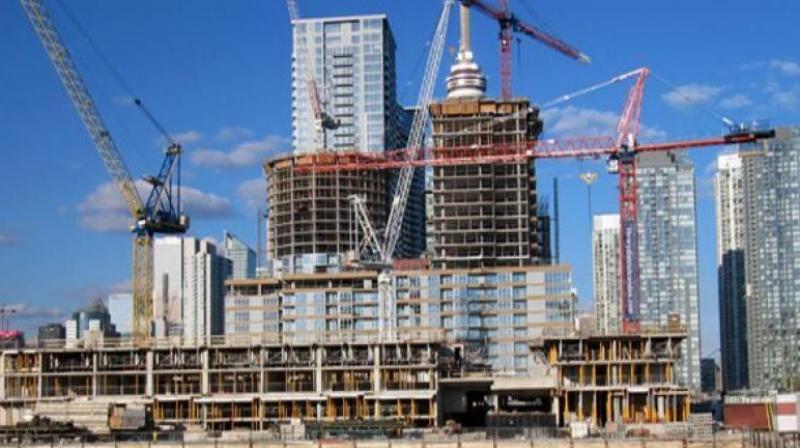'GST impact neutral for construction and infra sector'
The service tax applicable for construction companies is generally 6 per cent.

New Delhi: The provision of input tax credit in the upcoming GST tax regime, scheduled to roll out from July 1 this year, will be beneficial for the construction and infrastructure sector, according to a study.
While prima facie, the GST rate does appear higher than the current taxation regime, the availability of input tax credit under the GST will neutralise the impact of higher taxes, Icra said in its report on 'Impact of GST on Corporate Sector'.
"Under GST, the composite supply of works contracts fall under the 18 per cent GST rate with full input tax credit (ITC).
While prima facie, the GST rate does appear higher than the current taxation regime, in which majority of construction contracts fall under the nature of work contracts (which is overlapping between supply of services and supply of goods) and a combination of service tax and VAT is applicable," Icra said.
"The service tax applicable for construction companies is generally 6 per cent (assuming 40 per cent services portion of the contract)," it said.
However, the agency said, many construction activities (like construction of roads, dams, irrigation) are under service tax exemption list and the VAT payable varies across states ranging from 1-15 per cent and is applicable on the supply of goods portion of the contract.
Thus, the effective tax incidence for an average construction contract in the pre-GST era is typically in the range of 11-18 per cent, which is lower in comparison to the announced GST rate of 18 per cent.
The difference is more pronounced for the construction services which fall under the service tax exemption category, it said. However, despite higher rates, the sector is likely to benefit from the availability of input tax credit.
As under the current tax regime, the benefit of input tax paid is not fully available, the benefits arising out of input tax credit on the raw-materials available under the GST regime would result in an overall neutral tax incidence for construction services, it added.
For infra projects under implementation, the GST rates could result in an increase in cost, if there is insufficient built in contingency factor and limited scope for contract renegotiation.
For example, currently construction of road for public is exempt from service tax, but this does not appear in the GST exemption list and could result in increase in construction cost for the project, the report explained.
However, since under the GST regime, there is credit available for input taxes paid, it can counter-balance the higher GST rates.
Thus, the higher GST rates should get neutralised if the contractor passes on the benefit of higher input tax credit available to them, it added.

